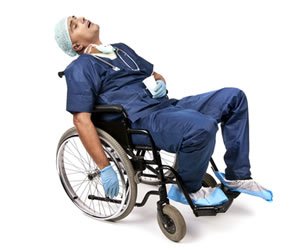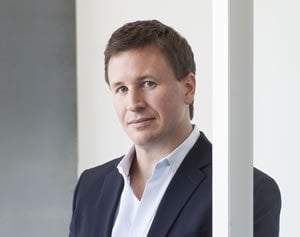
How to Make the Most of a Medical School Visit
Once you have been selected for an interview at a medical school, you will have ... Read more
Written by: Anubodh “Sunny” Varshney
Published on: September 9, 2015
Learn about medicine and how to become a physician in our articles for pre-medical students (including the MCAT), medical students, resident physicians, and practicing physicians.

Once you have been selected for an interview at a medical school, you will have ... Read more
Written by: Anubodh “Sunny” Varshney
Published on: September 9, 2015

Most people wouldn’t normally think of medical school as a risky investment. Sure, there are ... Read more
Written by: AJ Nguyen
Published on: September 4, 2015

The interview is one of the most important steps in the medical school application process. ... Read more
Written by: AAMC Staff
Published on: September 2, 2015

As third year medical students you’re rotating through your general specialties and you think you’re ... Read more
Written by: Eric Chow and Christopher Terry
Published on: August 31, 2015

Reposted from here with permission. On Valentine’s Day weekend last year I found myself at Paddles, the local ... Read more
Written by: Christy Duan
Published on: August 26, 2015

It is that time of year again. Medical school students across the country are preparing applications ... Read more
Written by: Jeff Steiner
Published on: August 21, 2015

For the past several years, I felt like all I heard was everyone in medical ... Read more
Written by: Adelle
Published on: August 17, 2015

Students will feel a variety of emotions during the weeks and days leading up to ... Read more
Written by: Anubodh “Sunny” Varshney
Published on: August 12, 2015

As a medical student, you spend four years of college and the first two years ... Read more
Written by: Judith Kalinyak
Published on: August 7, 2015

Mellissa Withers, MHS, PhD, is an assistant clinical professor at University of Southern California (USC) ... Read more
Written by: Juliet Farmer
Published on: July 27, 2015

Reposted from here with permission. The circumstances under which Jane and I met were less than ideal. ... Read more
Written by: Sean Sanker
Published on: July 22, 2015

The minute the tasseled hat flew off of my head after “Pomp and Circumstance”, I ... Read more
Written by: Adelle
Published on: July 20, 2015

1. 2 Days off in a row = Vacation! In high school, I looked forward ... Read more
Written by: Megan Riddle
Published on: July 10, 2015

Unlike other graduate school admissions processes, where there is typically only one round of applications, ... Read more
Written by: Anubodh “Sunny” Varshney
Published on: July 8, 2015

Updated March 3, 2022. The article was updated to correct minor grammatical errors and formatting. ... Read more
Written by: Student Doctor Network
Published on: July 3, 2015

1. What specifically prompted you to write The Real Doctor Will See You Shortly? I was having ... Read more
Written by: Chivas Owle
Published on: June 29, 2015

I had a certain level of (I thought well-justified) terror anticipating the start of intern ... Read more
Written by: Megan Riddle
Published on: June 26, 2015

Republished with permission from here. In the rest of the house, the noise of the party ... Read more
Written by: Katherine Caldwell
Published on: June 24, 2015

For most students, summer break is an opportunity to do many things for which there ... Read more
Written by: Brent Schnipke
Published on: June 22, 2015